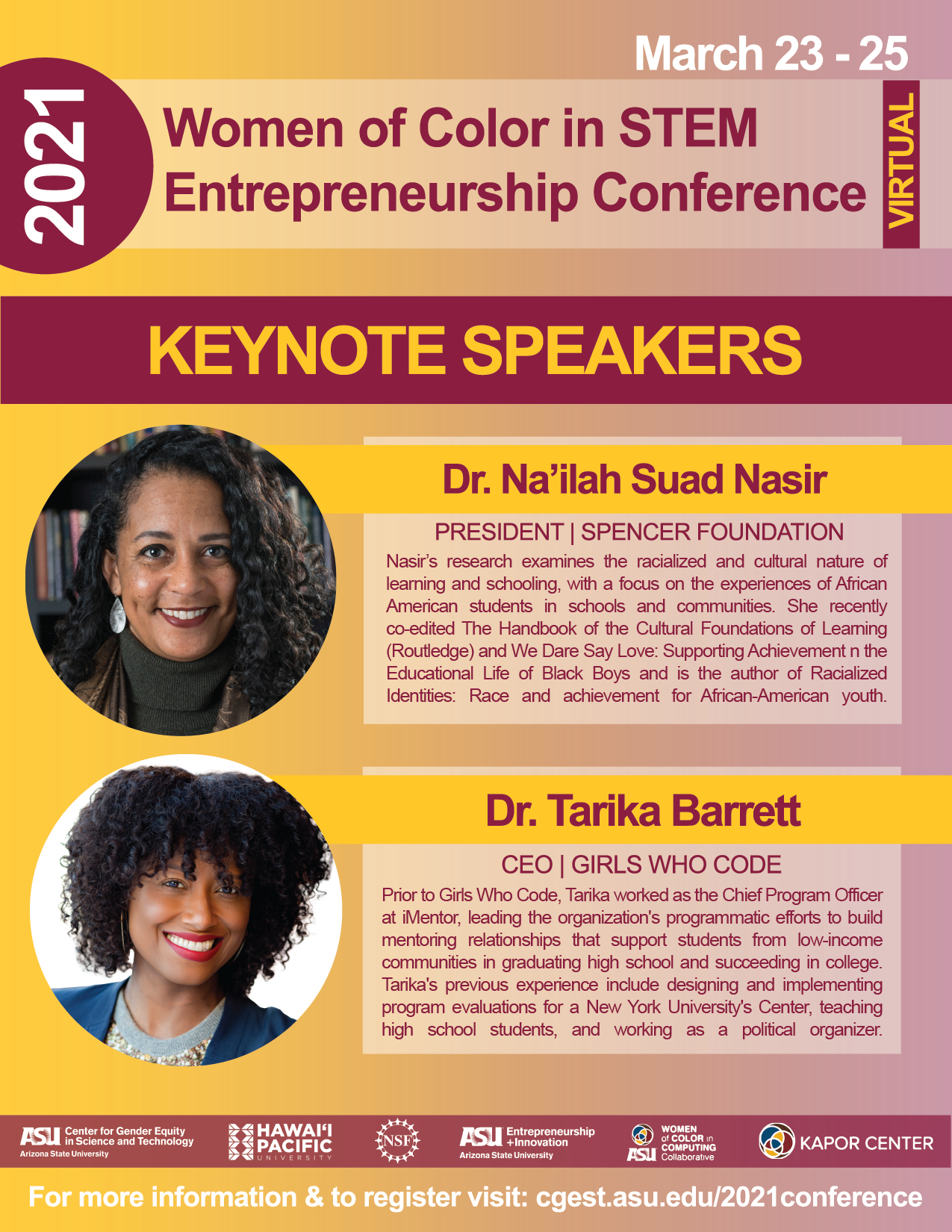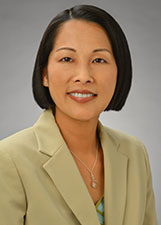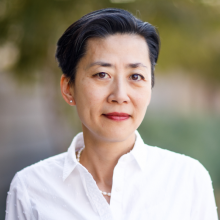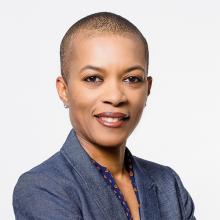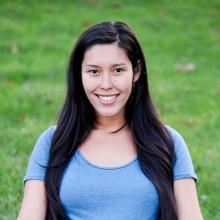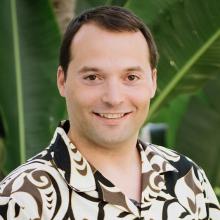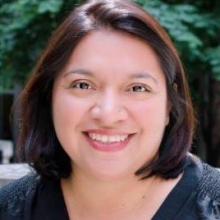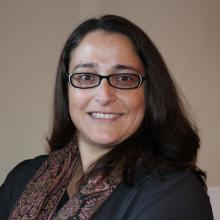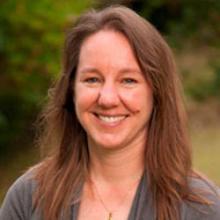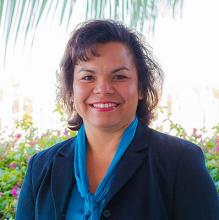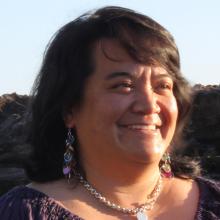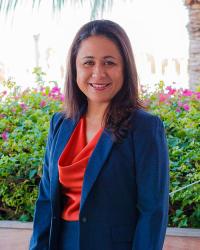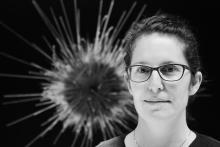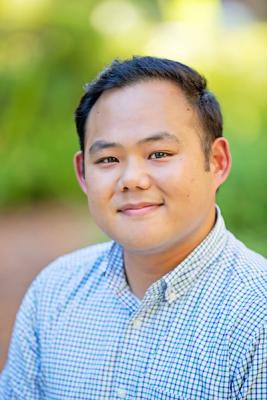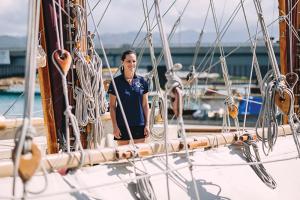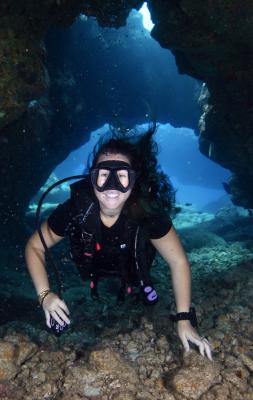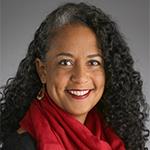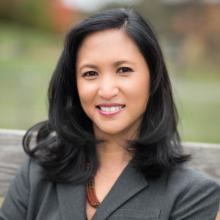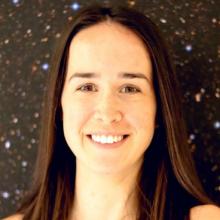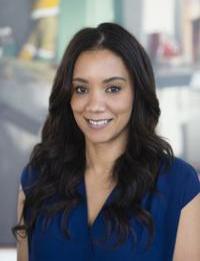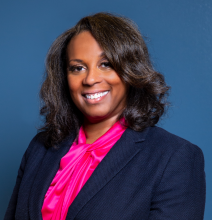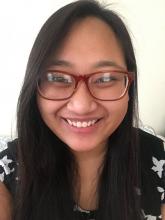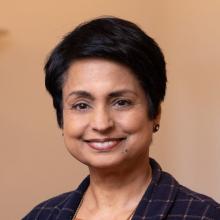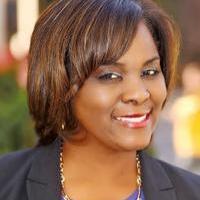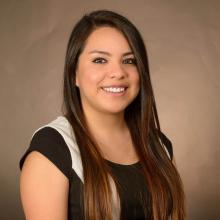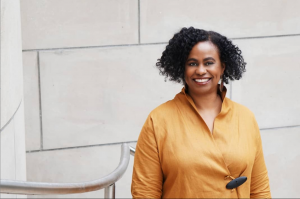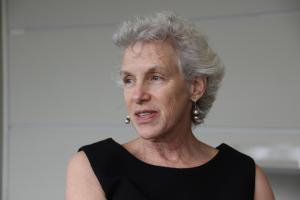We would like to thank our wonderful speakers for joining us to share their knowledge with all of you at this year's Women of Color STEM Entrepreneurship Conference. Our speakers come from an array of backgrounds with the STEM fields and each brings their own unique perspective and individual experience to their sessions. You can view all the speakers below along with a short bio.
Session: Keynote Speaker
Prior to joining Girls Who Code, Tarika worked as the Chief Program Officer at iMentor, leading the organization's programmatic efforts to build mentoring relationships that support students from low-income communities in graduating high school and succeeding in college. Prior to iMentor, she worked in the Office of Postsecondary Readiness at the New York City Department of Education overseeing options for students significantly off-track academically, as well as developing new schools models including the Academy for Software Engineering. Tarika's previous experience includes serving as Deputy Network Leader of the Brooklyn-Staten Island Network of New Visions for Public Schools, designing and implementing research and program evaluations for New York University's Center for Research on Teaching and Learning, teaching high school students, and working as a political organizer.
A graduate of Brooklyn College, Tarika has an M.A. in deaf education from Columbia Teachers College and a Ph.D. in teaching and learning from New York University. Tarika lives in Brooklyn with her husband and two children.
Session: Facilitator: Pin Down the Jellyfish: WOC Workplace Experiences
Jan Boivin is the senior vice president and general counsel at Hawai‘i Pacific University, where she oversees legal affairs, board governance, and human resources. She also supports the university’s innovative workforce education program, HPU Next.
Jan received a juris doctorate from the Georgetown University Law Center and a bachelor’s degree from Willamette University. She is the immediate past president of the Hawai‘i State Bar Foundation, a board member of the American Judicature Society, and the State Ombudsman Director for the Employer Support of the Guard and Reserve, Department of Defense.
Session: Panelist: Pin Down the Jellyfish: WOC Workplace Experiences
Dr. Brittany Chambers is currently the Manager of the Verizon Innovative Learning Young Men of Color and Rural Young Women Programs that serve middle school students at 45+ HBCUs, HSIs, MSIs, and Community Colleges nationwide. She additionally is launching a national initiative, known as the Verizon Community Initiative that is geared to create STEM Education and Workforce Readiness opportunities across the lifespan for communities of greatest need. In addition to this work, she has facilitated opportunities for 75+ organizations to further instrumental programs for communities at the periphery of access.
Pillars of Dr. Chambers’ portfolio of programs include: 1) providing the most immersive and cutting-edge technology access, 2) creating hands-on training opportunities in digital literacy, STEM education, and workforce readiness, and 3) leveraging Verizon employees to provide mentoring, job readiness training, and career exposure opportunities.
Dr. Chambers is excited to be celebrating a year at Verizon. She has also brought to her role varied experience in philanthropy, program development, and entrepreneurship with a focus on creating opportunities for the Black and LatinX communities. She holds a Doctorate in Education from Columbia University's Teachers College in Adult Learning and Organizational Leadership where her dissertation “Creating a Voice for Black Tech Entrepreneurs in Academic Literature” highlighted the importance of building an ecosystem of support across the lifespan—work she is now grateful to do at Verizon.
In her spare time, Dr. Chambers is a contributor for ForbesWomen, where she regularly writes on methods for diverse women to bridge the gaps in business, entrepreneurship, learning, and technology.
Session: Facilitator: Funding Women of Color in STEM Panel
Ji Mi Choi serves as a vice president, Knowledge Enterprise and leads the J. Orin Edson Entrepreneurship + Innovation Institute as founding executive director in service to ASU students, faculty, staff, alumni, and the greater community.
Previously, Ji Mi served in various fast-paced and evolving roles at New York University: early in her career at the Interactive Telecommunications Program at the Tisch School of the Arts before new media was new media; later at the Polytechnic University (now the Tandon School of Engineering at NYU), first serving as vice president for strategic initiatives and chief of staff to the president, then later serving as the senior director of integration, leading the merger between the two institutions; and subsequently serving as the assistant vice president for global programs planning. Ji Mi has also served at the world-renowned Earth Institute at Columbia University, ultimately as chief of staff and assistant deputy director. A long-time New Yorker by way of Seoul and an avid internationalist, Ji Mi has served in a leadership role for the United Nations Development Programme and in various capacities for numerous start-up organizations, both not-for-profit and for-profit (helping take a company public in the days of the dot-com boom), and has been involved in political campaigns.
Ji Mi serves on the boards of the StartupAZ Foundation, the Co+Hoots Foundation and numerous local and national advisory councils and committees for entrepreneur-supporting organizations and programs. She is a regular advocate and national speaker on inclusive entrepreneurship.
Ji Mi received her B.A. in English literature and communications from Marymount Manhattan College and her M.S. in strategic communications from Columbia University.
Session: Panelist: Funding Women of Color in STEM
Dr. Fay Cobb Payton is a Program Director at the National Science Foundation (NSF) in the Division of Computer and Network Systems. At the NSF, she is working with a group of leaders on programs involving Computer Science for All, Broadening Participation in Tech/STEM, Smart and Connected Health, Ethics in Computing and others. She is also a Full Professor (with Tenure) of Information Technology/Systems at North Carolina State University and was named a University Faculty Scholar for her leadership in turning research into solutions to society’s most pressing issues.
She was named the 2016 North Carolina Technology Association Tech Educator of the Year. She is the founder director of @myhealthimpact, a social network experience that focuses on health disparities and social media technology interventions. @MyHealthImpact provides “voice” for the millennial generation about health topics, such as sexual and mental health, and technology innovation.
Session: “I can do data for my people”: Native students in computer science give back to their tribal communities
Dr. Kathy DeerInWater is a citizen of the Cherokee Nation of Oklahoma. She joined AISES in October 2014, and completed her Doctoral degree in Ecology at the University of California, Davis in September 2015. As a long-time member of the AISES family, Dr. DeerInWater brings first-hand experience and passion to AISES’ mission of increasing the representation of Native people in STEM studies and careers. Dr. DeerInWater oversees program development, implementation, evaluation, and reporting for all AISES special projects, serving our youngest students to senior-level professionals. In addition, Dr. DeerInWater serves as the PI or program director on all research projects such as the National Science Foundation funded “Lighting the Pathway to Faculty Careers for Natives in STEM” project.
Session: System Mapping
Sam Dorios is a Systems and Complexity Associate at Hawaii Leadership Forum. He is experienced in systems thinking and practices which is used to support various projects and initiatives in efforts to create sustained positive social change. Sam facilitates systems mapping processes and is experienced in Kumu, a web-based software used to visualize systems maps into more accessible, interactive narratives.
Sam earned a master’s degree in Sustainable Peacebuilding from the University of Wisconsin-Milwaukee. He also has bachelor’s degrees in both history and religious studies, having graduated summa cum laude. At UWM, Sam was a member of Phi Beta Kappa, co-founder and president of the Religious Studies Student Organization, and served as a student representative on both the history department's board and the university's religious studies board.
Prior to joining the Hawaii Leadership Forum, Sam helped manage his family’s restaurant and was a teacher for Milwaukee schools. Subjects Sam taught include Latin and the History of Vampires.
Session: Out of School Educators
Dr. Patricia Garcia is an Assistant Professor. She conducts sociocultural research on race, gender, and technology with a special interest in studying how the use of culturally responsive computing practices can increase girls’ participation in STEM activities. Her area of interest is culturally responsive computing, learning in libraries, community archives, and participatory archives for STEM
Session: “I can do data for my people”: Native students in computer science give back to their tribal communities
Nuria Jaumot-Pascual, Ph.D., is a Research Scientist at TERC. She researches the experiences of women and LGBTQ+ individuals of color in STEM higher education, with a particular focus on computer science and engineering. She specializes in qualitative, literature synthesis, and visual inquiry methods.
Dr. Jaumot-Pascual is currently PI for “Native American Women and Two-Spirit Individuals in Computing Higher Education: A Photo Elicitation Study of Persistence” (NAWC2) funded by the Women of Color in Computing Collaborative (Kapor Center & Center for Gender Equity in Science and Technology at Arizona State University). NAWC2 studies the experiences of women and gender and sexual minorities in computer science undergraduate education using photo elicitation methods for data collection. This method uses participant-generated photographs in the context of an interview to collect data that is not always accessible through words alone.
Dr. Jaumot-Pascual is also Co-PI for “Literature Analysis and Synthesis of Women of Color in Technology and Computing” (LASOW) funded by the National Science Foundation – EHR Core. LASOW is systematically collecting and synthesizing the literature made accessible to the public 2000 – 2019 on women of color in computing and technology education and careers.
In addition to this work, Dr. Jaumot-Pascual has conducted research in informal math learning in out-of-school environments, such as libraries and museums, with intergenerational groups. She also conducts program evaluations.
Sessions: Opening; Facilitator: Diversity Impacts in Climate and Ocean Science Panel; Closing
Dr. Brenda Jensen is the Dean of the College of Natural and Computational Sciences and a Professor of Biology at Hawaii Pacific University.
Sessions: Systems Mapping: Leverage Points to Transform the System; Facilitator: Navigating to an Inclusive Future
Noelani Kalipi is the Chief Strategy Officer EVP of Progression Energy - Hawaii and Pacific, and she is the President of Kalipi Enterprises. Noe specializes in strategic planning and implementation and is a big-picture thinker who envisions the impact of a project as far as seven generations into the future. Noe was a senior staffer for U.S. Senator Daniel K. Akaka. As the Director for Government and Community Relations for First Wind, Noe led development strategy for utility-scale wind projects on the islands of Maui and O‘ahu. She served as the President of TiLeaf Group, a native advocacy firm that helped Native Hawaiian, Alaska Native and Indian Tribal communities with economic development. She also served as the Executive Director at Kohala Institute, where she managed a team focused on fostering place-based learning experiences and innovative social enterprises within 2,400 acres, including an intact ahupua‘a, on Hawai‘i Island.
“What is important is finding a pathway to join the community in creating its future. For me, it comes down to how we all work together to make the world a better place.”
Session: Panelist: Diversity Impacts in Climate and Ocean Science
Haunani Kane is a scientist, surfer, and voyager from Kailua, Oʻahu. Currently a NSF Postdoctoral Fellow at the University of Hawaiʻi at Hilo, Haunani’s life is guided by the values and storied history of her kūpuna (ancestors). Using the ocean as her classroom, the sky as her blackboard, and islands as models for sustainable living, Haunani has found a unique way to blend observation and traditional knowledge to form a world view that focuses upon the similarities rather than the differences among western and indigenous science.
Session: Facilitator: Navigating to an Inclusive Future; Panelist: High-Impact Practices for Long-Term Engagement of Girls of Color in STEM
Dr. Toni Marie Mapuana Kaui is the Founder, Head of School and Lead Learner of an independent, competency-based high school in East Hawaiʻi. Nā Hunaahi perpetuates ʻōlelo Hawaiʻi (Native Hawaiian language) and Native Hawaiian cultural practices through design-based integrative STEAM curricula and in partnership with community organizations. Students solve design challenges addressing community needs while also supporting their achievement of educational competencies. Kaui values the continuous development of creativity and imagination at the secondary level and demonstrates this commitment by modeling innovation in how she provides her school and its students with necessary resources on a meager budget. She champions increased computer science, cybersecurity, and information technology education and opportunities for underserved and underrepresented student populations, especially Native Hawaiians, and works toward achieving these goals as a Department of Defense STEM Ambassador, a Columbia University FabLearn Fellow, and a Code.org AP CSP facilitator. She holds a Doctor of Philosophy in Integrative K-12 STEM Education, a Master of Education in Private School Leadership, a Bachelor of Arts in Architecture, and a Bachelor of Science in Business Administration.
Session: Panelist: Navigating to an Inclusive Future
Ka'iu Kimura
Session: Panelist: Diversity Impacts in Climate and Ocean Science
Dr. Danika Kleiber is a Social Scientist at the NOAA Pacific Island Fisheries Science Center in Honolulu, Hawaiʻi. Throughout her career Danika has woven together her background in women’s studies and biology, which has led her to specialize in socio-ecological research approaches to natural resource governance. She is particularly interested in applied research related to gender and Pacific Island fisheries, and is delighted to be learning more about bio-cultural and community centered approaches.
Sessions: Panelist: Pin Down the Jellyfish: WOC Workplace Experiences; Organizational Policy and Intervention
Gregg Muragishi is an advanced doctoral researcher at Stanford University who studies how people interpret and draw meaning from positive and negative social cues in their environment. In particular, Gregg is interested in how subtle interpersonal interactions can ignite change within organizations to increase belonging, interest, and motivation for underrepresented and minoritized groups in STEM.
Session: Panelist: Navigating to an Inclusive Future
Born and raised in Waimea and Waipiʻo Valley on the island of Hawaiʻi, Kaʻiulani Murphy developed a passion for voyaging while a Hawaiian Studies student at the University of Hawaiʻi at Mānoa. Since 1998, she has served as a crew member with Hōkūleʻa and the Polynesian Voyaging Society, participating in voyages to Rapa Nui, Papahānaumokuākea Marine National Monument, Micronesia and Japan, and the recent Mālama Honua Worldwide Voyage. Kaʻiulani feels privileged to learn from extraordinary mentors and to share her experiences with students at Honolulu Community College and UH Mānoa where she teaches courses in Hawaiian astronomy, navigation and voyaging.
Session: Panelist: Diversity Impacts of Climate and Ocean Science
Alohi Nakachi is from Hawaiʻi island and is a PhD candidate at University of Hawaiʻi at Mānoa working with NOAA collaborators to explore how and whether to map "social values" people hold for the environment.
Session: Keynote Speaker
Na’ilah Suad Nasir is the sixth President of the Spencer Foundation, which funds education research nationally. She has held a faculty appointment in Education and African American Studies at the University of California, Berkeley where she also served as the chair of African American Studies, then later as the Vice Chancellor for Equity and Inclusion. She also served on the Faculty of the Stanford Graduate School of Education from 2000 to 2008.
Nasir’s research examines the racialized and cultural nature of learning and schooling, with a particular focus on the experiences of African American students in schools and communities. She recently co-edited The Handbook of the Cultural Foundations of Learning (Routledge) and We Dare Say Love: Supporting Achievement in the Educational Life of Black Boys. She is also the author of Racialized Identities: Race and achievement for African-American youth, published by the Stanford University Press in 2012. Nasir is a member of the National Academy of Education and a Fellow of the American Educational Research Association. She chairs the board of the National Equity Project, and serves as an advisory board member for the Public Policy Institute of California, and the Division of Letters and Science at the University of California, Berkeley. She is also the President-Elect of the American Educational Research Association.
Session: “I can do data for my people”: Native students in computer science give back to their tribal communities
Mia is a Senior Research Scientist at TERC, a STEM education research organization in Cambridge, Massachusetts. She is also the Founder and Director of Project SEED (Science and Engineering Equity and Diversity), a social justice collaborative affiliated with The Civil Rights Project/Proyecto Derechos Civiles at UCLA. For nearly twenty years, she has conducted empirical research focusing on women of color in higher education and careers in STEM and has led the evaluation of several STEM diversity/inclusion programs. Between 1996 and 2000, she directed an undergraduate physics program for students of color and women at U.C. Berkeley; for this work, she was a co-recipient of a U.S. Presidential Award for Excellence in Science, Mathematics, and Engineering Mentoring. Mia is a member of the Advisory Board of the Center for Gender Equity in Science and Technology (CGEST). She is former Chair of the Social Science Advisory Board for the National Center for Women and Information Technology (NCWIT) and a former member of the NSF Committee on Equal Opportunities in Science and Engineering, the NSF Advisory Committee for the GPRA Performance Assessment, and the NSF Advisory Committee to the Social, Behavioral, and Economic Sciences. Mia holds a Ph.D. in Social and Cultural Studies in Education from the University of California at Berkeley.
Sessions: Panelist: Not Just the Luck of the Draw: High-Impact Practices for Long-Term Engagement; Research Informed Practices
Dr. Riegle-Crumb is Professor of STEM Education and Sociology at the University of Texas at Austin. Her research interests center upon gender and racial/ethnic inequality in educational experiences and achievement. As a sociologist of education, she is particularly interested in the role of social contexts, including friendships, schools, and communities, in increasing or ameliorating educational disparities in STEM fields. Her research also focuses on the intersection between gender and race/ethnicity with regard to educational inequality. Dr. Riegle-Crumb's work has been funded with grants from several agencies and foundations, including the National Science Foundation and the Spencer Foundation. Her research expertise includes quantitative research methods and analyses of national datasets.
Session: Panelist: Navigating to an Inclusive Future
Dr. Laurie Rousseau-Nepton is a resident astronomer at the Canada-France-Hawaii Observatory and postdoctoral researcher at the University of Hawaii. First indigenous woman in Quebec to obtain a PhD in astrophysics, she received her diploma from Université Laval by studying regions of stellar formation in spiral galaxies using an imaging spectrograph. She consequently demonstrated the efficiency of SpIOMM and SITELLE imaging spectrograph for the detailed study of emission lines in spiral galaxies. Her expertise now allows her to train other researchers to use those tools. Laurie Rousseau-Nepton is presently a FRQNT postdoctoral scholarship recipient and was previously received the Hubert Reeves Fellowship and the Award for native women in sciences of the Association des femmes diplômées des universités du Québec.
Session: Panelist: Funding Women of Color in STEM
Dr. Allison Scott is the Chief Research Officer at the Kapor Center, leading a research team aiming to enhance diversity in the tech ecosystem through: (a) conducting landscape studies and research on interventions within educational settings and the technology workplace, and (b) disseminating effective research-based strategies, resources, and practices across the tech ecosystem. Prior to leading research at KCSI, Dr. Scott was the Program Leader for the NIH’s Enhancing the Diversity of the NIH-funded Workforce Program, a set of three experimental initiatives implementing and examining the effectiveness of training, mentoring, and institutional development interventions to enhance diversity in biomedical research. Dr. Scott was previously the Director of Research and Evaluation at the Level Playing Field Institute (LPFI), overseeing a research agenda examining barriers to the pursuit and completion of degrees and employment in Science, Technology, Engineering, and Mathematics (STEM) among underrepresented populations. Her research examined the influence of perceived barriers and stereotypes in the sciences, the double-bind facing women of color, and the effectiveness of research-based interventions in improving STEM outcomes for underrepresented groups. In addition, Dr. Scott led the longitudinal evaluation of LPFI’s pre-college STEM intervention programs and is Principal Investigator for an NSF CE21 grant to increase access, success, and preparation in computer science for underrepresented students in California. In just 2 years, this project has demonstrated significant increases in the numbers of underrepresented students of color and girls completing computer science courses, taking the AP CS exam, and intending to major in CS in college. Dr. Scott holds a Ph.D. in Education, with a specialization in School Psychology, from the University of California, Berkeley and a Bachelor’s degree in Psychology from Hampton University. Allison enjoys traveling, jogging, and drinking Diet Cokes.
Sessions: Opening; Facilitator: Not Just the Luck of the Draw: High-Impact Practices for Long-Term Engagement Panel; Closing
Dr. Kimberly Scott is the Founding Executive Director at the Center for Gender Equity in Science and Technology and a Professor at Arizona State University. The center is a one-of-a-kind research unit focused on exploring, identifying, and creating innovative scholarship about underrepresented women and girls in science, technology, engineering and mathematics (STEM). Trained as a sociologist of education and childhoods, Scott’s interdisciplinary work examines girls’ of color (African American, Native American, Latina) social and academic development in informal spaces and their technosocial innovations. Having written and successfully won more than millions in grant funding to support research and programs for girls of color and digital media use, Scott was named in 2014 as a White House Champion of Change for STEM Access. The same year, the publication Diverse Issues in Higher Education identified Kimberly as one of the top 30 women in higher education.
Session: "I can do data for my people": Native students in computer science give back to their tribal communities
Christina B. Silva, B.S.W., is a Research Associate at TERC. She began her career as a researcher through her participation in the TERC Scholars Program, a research internship opportunity for undergraduate students of color offered at TERC. Over the last three years, she has engaged in qualitative research focused on the lived experiences people of color, particularly of women and girls of color, in STEM education and professions. She has also assisted on research conducted by the American Institute of Physics TEAM-UP Task Force, and served as part of an evaluation team for G|Code House. She holds a Bachelor of Social Work from Simmons University.
Session: Language Use Assessment for Funders
Michael Simeone is the Director for Data Science and Analytics at ASU Libraries and an Assistant Research Professor with the Biosocial Complexity Initiative at Arizona State University.
His research explores interdisciplinary applications of data science. He is also a Senior Sustainability Scientist with the Julie Ann Wrigley Global Institute of Sustainability at ASU. He received his PhD in English at the University of Illinois at Urbana Champaign in 2011, and completed a postdoctoral fellowship with the Illinois Informatics Institute at the National Center for Supercomputing Applications.
Session: Thriving in Early Career
Rati Thanawala spent 39 years in the high-tech industry, the last 17 as Vice President at Bell Labs. She has a PhD in Computer Science. She has held executive positions at AT&T and Nokia, in software development, consulting, product management, and business management. Throughout her career, Rati has been an active mentor and sponsor to many women and minorities. She is now a Fellow at the Women and Public Policy Program at Harvard University’s Kennedy School.
Rati is the Founder of the Leadership Academy for Women of Color in Tech. She is creating accelerators for women of color to succeed in the tech sector. The approach is two-fold: 1) leadership development as extra preparation for women managing multiple dominant identities in challenging workplaces, and 2) curating creative solutions that “enlightened” managers have devised to help level the playing field, and then using these to educate and transform ‘culture’ in organizations.
Session: Affecting Policy
Nicol Turner-Lee is a Fellow in Governance Studies for the Center for Technology Innovation at the Brookings Institute in Washington, D.C. In her former role as Vice President and Chief Research and Policy Officer for MMTC, Turner-Lee designed and implemented a research and policy agenda that supported MMTC’s mission, and advocated for telecom and Internet policy reform through legislation, rulemaking, executive orders, public-private partnerships, and best practices. In 2011, she was appointed to the Federal Advisory Committee on Diversity in the Digital Age by former FCC Chairman Julius Genachowski of the Federal Communications Commission, where she chairs the subcommittee on the use of unlicensed devices to increase minority innovation and entrepreneurship. Nicol graduated with honors from Colgate University and has a doctorate in sociology from Northwestern University and a certificate in nonprofit management from the University of Illinois-Chicago.
Session: Panelist: Not Just the Luck of the Draw: High-Impact Practices for Long-Term Engagement
Mitzi Vilchis was a participant in CompuGirls’ second cohort from 2009 to 2011. As a freshman at Arizona State University in 2012, Ms. Vilchis worked as an REU (Research Experience for Undergraduates) with the CompuGirls program where she was mentored by graduate research students, conducted focus groups, co-authored a chapter in #youthaction: Becoming Political in the Digital Age, and attended national and local conferences where she spoke on her experience within the program. After receiving her Bachelor of Arts in Secondary Education with an emphasis in English in 2016, Ms. Vilchis lived in Merida, Yucatan, Mexico for two years as an English Teaching Assistant with the Fulbright program. During her time there, she replicated a program similar to CompuGirls with students in Mexico. Students were asked to create video documentaries discussing social justice issues and create SCRATCH projects to practice their English language. Currently, Ms. Vilchis teaches English Language Development in the Phoenix Union High School District at Carl Hayden. She plans to work towards her Ph.D and continue to collaborate with CGEST in the future.
Sessions: Panelist: Funding Women of Color in STEM; For Fund Seekers Pitch Coaching and Q&A
Brenda Darden Wilkerson is an advocate for access, opportunity, and social justice for underrepresented communities in technology. She currently serves as the President and CEO of AnitaB.org, an organization working to shape public opinion about issues of critical importance to women technologists in academia, industry, and government. She founded the original Computer Science for All program, building computer science classes into the curriculum for every student in the Chicago Public Schools, and serving as the inspiration for the Obama administration’s national CS4All initiatives.
Session: Panelist: Pin Down the Jellyfish: WOC Workplace Experiences
Described by The New York Times Magazine as having “something approaching rock star status” in her field, Joan C. Williams is the Founding Director of the Center for WorkLife Law at the University of California, Hastings Law. She has authored 11 books and over 100 academic articles and book chapters, and is the 11th most cited scholar in her field. Williams holds an honorary PhD from Utrecht University in the Netherlands for her research on workplace bias.
Williams’ influential studies on implicit bias in STEM include a study of science professors—Double Jeopardy? Gender Bias Against Women in STEM (co-authored with Katherine Phillips & Erika Hall) and two studies of engineers—Climate Control: Gender and Racial Bias in Engineering? And Walking the Tightrope: An Examination of Bias in India’s Engineering Workplace. The first study examines how the experience of gender bias differs by race. The second study examines the parallels and differences between implicit bias based on gender and race. Williams has developed tools for advancing and retaining women in STEM, which are available on toolsforchangeinSTEM.org. Williams and her team have just completed a study of the Workplace Experiences of Women of Color in Tech in collaboration with the Kapor Center, which will be published this year.
